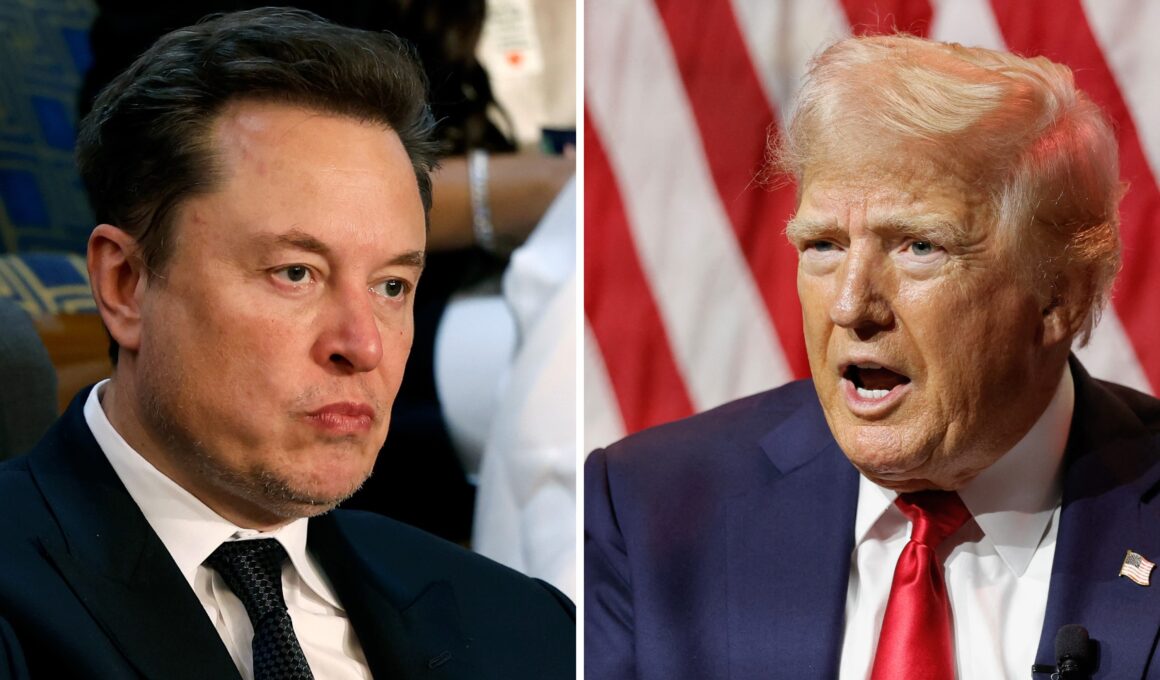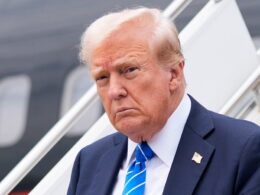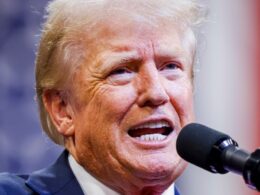Former President Donald Trump‘s planned interview with Elon Musk got off to a difficult start on Monday as Musk claimed that a cyberattack prevented users from accessing the interview on X, formerly Twitter.
Trump and Musk, who purchased the platform in late 2022 and has endorsed the former president, teased the “talk” on X Spaces extensively before it was set to take place at 8 p.m. Eastern time on Monday.
However, when the time came, the link displayed only a “Space Not Available” message for most users. It was unclear whether the conversation started, as the Spaces link was still inaccessible as of 8:23 p.m.
Musk claimed that a cyberattack was to blame in a post at 8:18 p.m., writing the following: “There appears to be a massive DDOS attack on X. Working on shutting it down. Worst case, we will proceed with a smaller number of live listeners and post the conversation later.”
There appears to be a massive DDOS attack on 𝕏. Working on shutting it down.
Worst case, we will proceed with a smaller number of live listeners and post the conversation later.
— Elon Musk (@elonmusk) August 13, 2024
A DDoS, or distributed denial of service, is an attack that typically sends vast amounts of traffic at a platform’s servers in the hope of temporarily knocking it offline.
The X owner later explained that the company had “tested the system with 8 million concurrent listeners earlier today” before announcing a plan to “proceed with the smaller number of concurrent listeners at 8:30 ET and then post the unedited audio immediately thereafter.”
Musk finally began speaking in the Space at 8:42 p.m., claiming the “massive attack illustrates” that “there’s a lot of opposition to just hearing what President Trump has to say.”
Trump then claimed that Musk had broken “every record in the book” as the interview began, although X Spaces showed that only 1 million people were listening at the time, which was far from a “record” amount of listeners for a Trump interview.
Newsweek reached out for comment to X and the Trump campaign via email on Monday night.
NetBlocks, a cybersecurity watchdog, claimed in an X post that the delay was “due to server issues,” while later resharing a post that noted “any sufficiently overloaded server is indistinguishable from a DDoS.”
Before the Trump segment was originally scheduled to begin, Musk said that the event would be a “conversation” rather than an interview, writing the following a few minutes before 8 p.m.:
“My use of the word conversation is deliberate. This is so that people understand how @realDonaldTrump talks when it’s a conversation, rather than an interview. Nobody is quite themselves in an interview, so it’s hard to understand what they’re really like.”
Monday’s delayed Trump event was not the first time that technical issues have marred an attempt by Musk to conduct a live interview with a Republican politician on X.
In May 2023, Musk hosted Florida Governor Ron DeSantis on the platform as he announced his Republican primary challenge of Trump. The event crashed multiple times during the first 20 minutes, while those who were able to listen were greeted with stream featuring deafening feedback and echoes.







